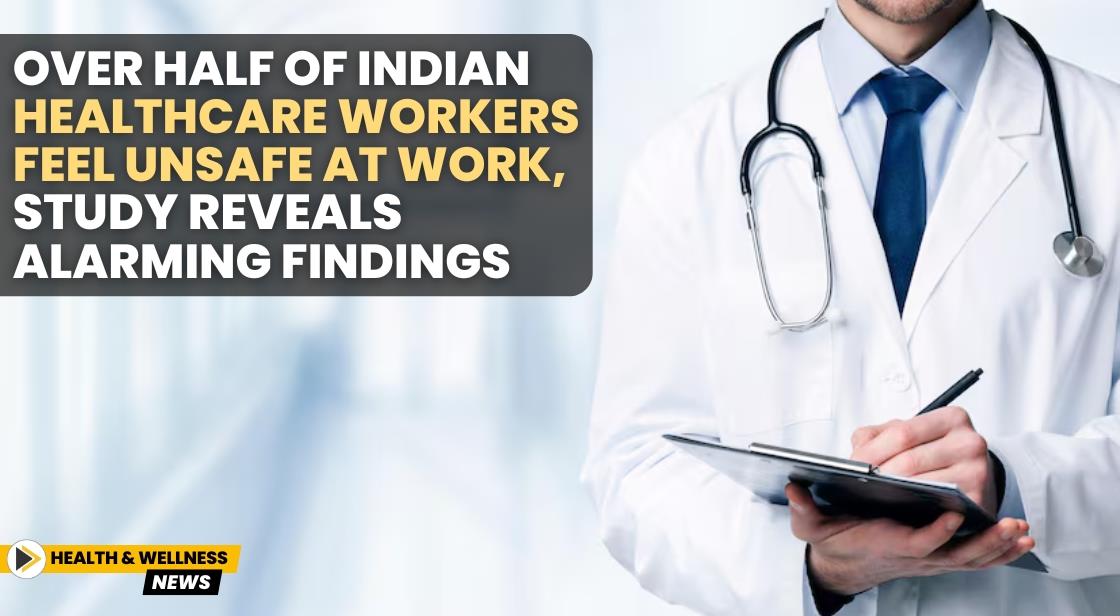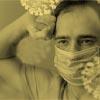Over Half of Indian Healthcare Workers Feel Unsafe at Work, Study Reveals Alarming Findings

News Synopsis
A new study led by experts from prestigious institutions such as Vardhman Mahavir Medical College (VMMC), Safdarjung Hospital, and AIIMS, New Delhi, has raised alarming concerns about the safety and security of healthcare workers across India. The study titled “Workplace Safety and Security in Indian Healthcare Settings: A Cross-Sectional Survey” highlights that over 50% of healthcare workers perceive their workplace as unsafe, especially those employed in state and central government medical colleges.
This comprehensive study, recently published in Epidemiology International, sheds light on the "significant gaps" in safety measures within Indian healthcare institutions, revealing an urgent need for enhanced security infrastructure to protect both medical professionals and patients.
National Survey on Healthcare Safety
The research, which was spearheaded by Dr. Kartik Chadhar and Dr. Jugal Kishore from VMMC and Safdarjung Hospital, along with Dr. Richa Mishra, Dr. Semanti Das, Dr. Indra Shekhar Prasad, and Dr. Prakalp Gupta from AIIMS, Delhi, aimed to assess the current state of workplace safety in healthcare settings across India. The survey involved a cross-sectional study of 1,566 healthcare professionals from diverse institutions nationwide. Participants responded to a pre-tested, self-administered online questionnaire that examined multiple dimensions of workplace safety.
Out of the total respondents, 55.5% were women and 44.5% were men. Interestingly, one-fourth of the participants were from Delhi, while the majority worked in government-run medical colleges (71.5%). Almost half of the respondents were resident doctors (49.6%), followed by undergraduate medical students and interns (15.9%). Other participants included faculty members, medical officers, nursing staff, and support personnel.
Stark Reality: Safety Concerns in Indian Healthcare Settings
The results of the survey painted a bleak picture of healthcare safety in India. Over half (58.2%) of healthcare workers admitted they feel unsafe at work. More concerning, 78.4% reported experiencing threats while on duty. Dr. Jugal Kishore, the corresponding author, emphasized that inadequate facilities like duty rooms were a significant issue, with nearly half of the respondents lacking access to proper rest areas while working long hours or night shifts.
The study also revealed severe deficiencies in basic amenities such as ventilation, pest control, and air conditioning in existing duty rooms. This lack of infrastructure not only hampers the efficiency of healthcare professionals but also puts their well-being at risk.
Security Infrastructure in Critical Areas
The dissatisfaction with security measures in hospitals is profound. A staggering 70% of healthcare workers felt that the security personnel were ineffective. Additionally, 62% of respondents found emergency alarm systems inadequate. There were also severe concerns over access control, surveillance, and security in high-risk areas such as ICUs and psychiatric wards, with nearly half of the respondents pointing out glaring deficiencies.
The study also revealed that over 90% of healthcare institutions in India lacked proper screening protocols for dangerous objects, with three-quarters of respondents highlighting the absence of secure hospital boundaries. These findings portray a "dire picture of insufficient security" in critical healthcare settings, where the safety of both staff and patients is compromised.
Private vs Public Healthcare Institutions: A Striking Difference
One of the most significant revelations from the study was the contrast between public and private medical institutions. According to Dr. Kishore, "A striking difference in security satisfaction emerged between private and public medical colleges, with state government institutions showing the highest dissatisfaction." Over 63% of healthcare workers in state-run colleges expressed dissatisfaction with the number of security personnel, and dissatisfaction with security infrastructure in high-risk areas was over 3.5 times higher in public institutions compared to private colleges.
Even though central government medical colleges fared better than state-run institutions, they still lagged significantly behind private institutions in terms of security satisfaction.
Rising Violence Against Healthcare Workers
The study also brought to light the escalating issue of violence against healthcare workers. An alarming 81.3% of respondents reported witnessing violence in their workplace, yet 44.1% of them believed these incidents were poorly handled. Additionally, 80% of the participants were unsure of whom to contact in case of emergencies, while over 70% noted the absence of a clear and confidential process for reporting security concerns.
Recommendations for Improvement
In light of these findings, the study recommends several key measures to address the growing safety concerns. These include strengthening security in high-risk areas, increasing the number of trained security personnel, improving duty room conditions, and implementing clear protocols for handling violence. The study also suggests regular security training for healthcare workers and greater collaboration with national agencies to develop legal frameworks that safeguard healthcare settings.
As healthcare workers continue to serve on the frontlines, especially in the wake of the COVID-19 pandemic, addressing their safety concerns is crucial for ensuring a secure and efficient healthcare environment.
Conclusion:
The findings of this study underscore the urgent need to prioritize the safety and security of healthcare workers in India. With over half of the workforce feeling unsafe, the time has come to implement substantial reforms, particularly in government medical institutions. Enhanced security measures, better infrastructure, and clear violence-handling protocols are essential to ensuring that healthcare professionals can work in environments that are conducive to both their well-being and the care of their patients. As India continues to grapple with these challenges, the government and healthcare institutions must collaborate to create a safer workplace for all medical personnel.
You May Like









